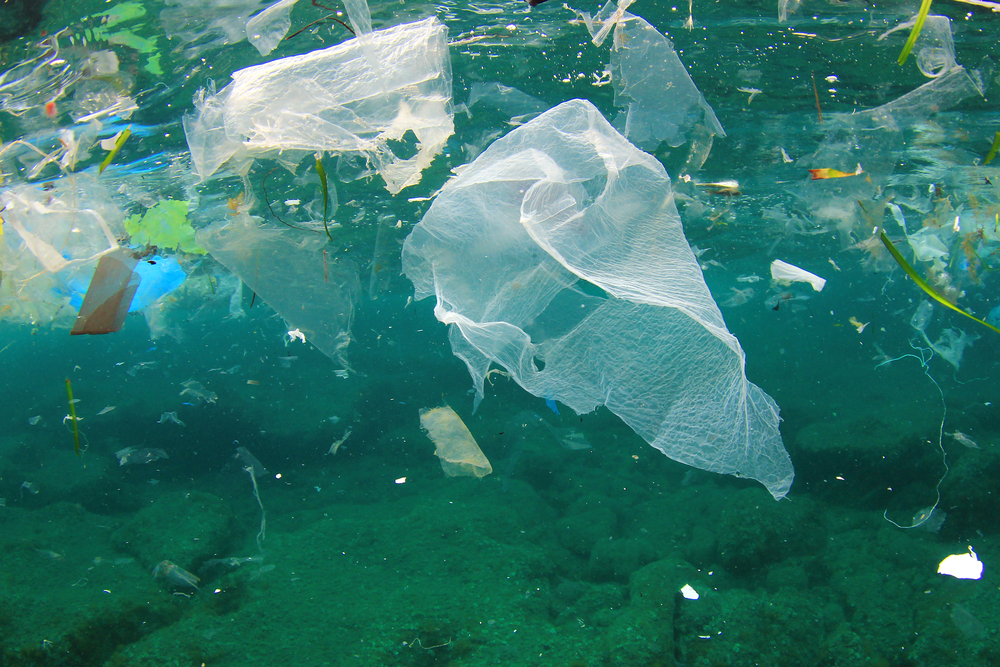Ideas to eliminate plastic waste
Plastic waste has been getting very bad press recently. The debate in the UK seemed to have been awoken by the screening of the final episode of Blue Planet 2. In which David Attenborough’s eloquent words in addition to some amazing footage highlighted the effects that plastic waste is having on the world’s oceans. In some ways it’s a shame it has taken this long for the public debate to start, as the problem with oceanic plastic waste has been known about for many years.
What a problem it is too. Are you aware that there are five well known massive ‘gyres’ or whirlpools in the oceans that consist of small suspended plastic fragments that form sort of a plastic soup? Some of these plastics will take hundreds of years before completely biodegrading. For example it can take around 450 years for a plastic drinks bottle to totally biodegrade. Such plastics can have harmful effects on a range of marine species causing issues such as malnutrition or starvation.
This is obviously a huge global problem. But how do we tackle it? Well from a very broad strategic level we need to apply the waste hierarchy as we would if we are trying to prevent or minimise any type of waste. There are numerous versions of the hierarchy, such as reduce, reuse, recycle. But perhaps the most well-known, as it appears in the EU waste framework directive, is depicted on Page 11 in the following: https://www.gov.uk/government/uploads/system/uploads/attachment_data/file/69401/pb13540-waste-policy-review110614.pdf
It is often thought by the layman that the best option for minimising plastic waste, and for that matter any other type of waste, is to make sure that it is recycled. However, as we can see from the above, recycling sits halfway down the hierarchy. Therefore, our number one option, if we want to clean up our oceans, is to prevent plastic from entering them in the first place. Other options such as making plastic more biodegradable or easier to recycle or recover certainly have their place, but the first and best place to start is preventing plastic waste.
This could take the form of outright bans on plastic products. For example, in England facial scrubs and similar products containing plastic micro-beads will be banned from June 2018. Bans can be controversial and there must usually be an alternative that has a lower sustainability impact than the plastic product being replaced. Another option that sits in prevention would be to apply a market based instrument (a financial disincentive or incentive) associated with plastic products. For example, in the UK there is a cost that must be levied on plastic carrier bags by larger retail outlets, such as supermarkets, that has been highly successful in reducing the number of plastic carrier bags that are used by society. Why not extend this to other plastic products? Applying a similar charge to disposable drinks cups has been mooted by some. The money raised by such charges could be given to those who are actively involved in reducing waste, in a similar vein to the carrier bag charge.
Other innovative MBIs could include a strengthening and expansion of existing producer responsibility legislation. For example, the producer responsibility packaging waste initiative could be strengthened to ensure that it is a real disincentive to make products out of certain types of plastics. Governmental policy could also consider limiting the amounts of certain types of more environmentally harmful plastics. This would be in a similar way that limits are placed on the amounts of dangerous materials such as mercury and cadmium that are allowed in the manufacturer of electronic products (by the restriction of the use of certain hazardous substances in electrical and electronic equipment (ROHS) directive.
If we are ever to solve the problem of plastic waste entering out oceans our addiction to the type of plastics that we use today must cease. Dealing with plastic waste is no different to any other environmental impact and the source of the problem must be eliminated. In this case innovative ideas to reduce or prevent plastic products being made in the first place. The less plastic products we have in society then the less there is available to enter our oceans.
–
Further reading
http://www.bbc.co.uk/news/science-environment-42264788
https://www.legislation.gov.uk/ukdsi/2017/9780111162118
http://eur-lex.europa.eu/legal-content/EN/TXT/PDF/?uri=CELEX:32011L0065&from=en
–
John Binns BSc (Hons), MSc, MSc, MIEMA
With over 19 years’ experience working in environment management, John Binns BSc (Hons) MSc MIEMA is an experienced environmental tutor and consultant with knowledge of health and safety management.
